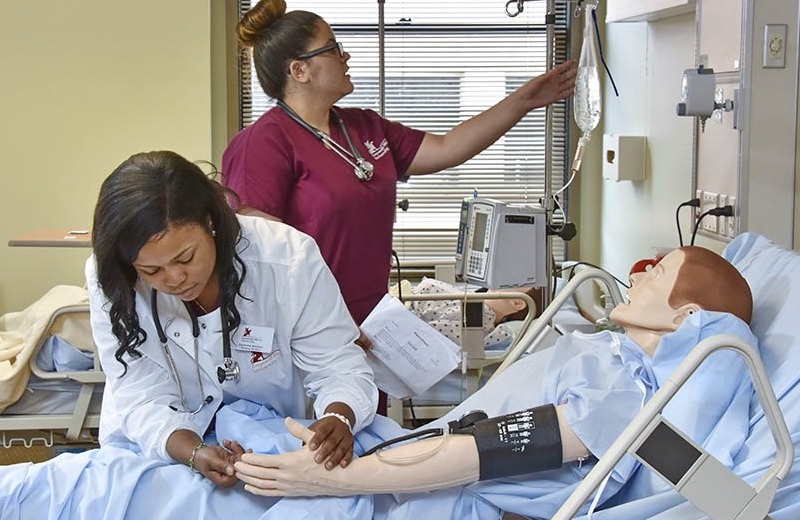Nurse Ratched From Cuckoo's Nest - Exploring Her Persona
When we think about characters that truly stick with us from stories, some just have a way of staying put in our thoughts. One such figure, without a doubt, is Nurse Ratched from "One Flew Over the Cuckoo's Nest." She's a person who, in a way, redefined what many people imagined a caregiver could be, and not in a comforting sense. Her presence, you see, looms large in the minds of anyone who has encountered the book or the film, leaving a rather strong impression that lasts a long, long time.
This particular character, a sort of head honcho in a mental health ward, shows us a side of authority that feels quite chilling. She manages her space with an iron grip, and her methods for keeping things in order are, to be honest, a little unsettling. Her story, as a matter of fact, really gets us thinking about power, about freedom, and about what it means to truly look after someone's well-being, especially when they might be vulnerable.
So, as we spend a little time considering her, we're not just looking at a fictional person; we're actually exploring a symbol. A symbol of institutional control, of the struggle between independence and conformity, and how someone in a caregiving position can, quite frankly, turn that role on its head. It's a fascinating look, really, at how a character can challenge our basic ideas about help and healing.
Table of Contents
- Who is Nurse Ratched - A Fictional Biography?
- Personal Details and Background of Nurse Ratched from Cuckoo's Nest
- What Makes Nurse Ratched from Cuckoo's Nest So Memorable?
- The Power Dynamics of Nurse Ratched from Cuckoo's Nest
- How Does Nurse Ratched from Cuckoo's Nest Contrast with Typical Nursing Roles?
- The Nurse's Core Purpose - A Different View from Nurse Ratched from Cuckoo's Nest
- Why Does Nurse Ratched from Cuckoo's Nest Continue to Resonate?
- What Lessons Can We Learn from Nurse Ratched from Cuckoo's Nest?
Who is Nurse Ratched - A Fictional Biography?
Big Nurse, as she's often called by the people in her care, is the central figure of authority at the Oregon State Hospital's psychiatric ward in Ken Kesey's famous story. She's presented as someone who keeps a very tight ship, where everything is ordered and controlled to a truly extreme degree. Her past before this particular hospital isn't really laid out for us, which, in a way, makes her even more mysterious and perhaps a little frightening. We only really see her in her role as the head nurse, where she seems to have been for quite some time, establishing a system that is almost impossible to challenge. She's a person who, basically, embodies the rigid and often cold nature of institutional power.
Her daily routine involves overseeing every little thing that happens on the ward, from the patients' activities to the interactions among the staff. She uses a quiet, almost calm manner to exert her will, which is, honestly, more unsettling than if she were to shout. She rarely raises her voice, but her gaze and her subtle actions speak volumes, ensuring that everyone around her stays in line. This steady, unyielding approach is what makes her such a formidable presence in the story, and it's what makes her so memorable for so many readers and viewers. She is, quite simply, a force to be reckoned with, and her influence is felt in every corner of her domain, pretty much.
Personal Details and Background of Nurse Ratched from Cuckoo's Nest
While the story doesn't give us a deep look into her personal life outside the hospital walls, we can gather a few things about her character from her actions and the way others react to her. She seems to live a life totally dedicated to her work, or perhaps, to her idea of what her work should be. There are no mentions of family, friends, or any hobbies, which, you know, just adds to her rather detached and almost mechanical persona. She is, in essence, her job, and her job is control.
| Detail | Description |
|---|---|
| Full Name | Mildred Ratched |
| Occupation | Head Nurse, Psychiatric Ward |
| Setting | Oregon State Hospital (Fictional) |
| Key Traits | Controlling, Manipulative, Calm, Unyielding, Authoritarian |
| Method of Control | Psychological manipulation, strict rules, quiet intimidation |
| Appearance | Often described as having a stiff, unsmiling demeanor; a uniform that seems to emphasize her authority. |
| Goal | Maintain absolute order and conformity on the ward, suppress individuality. |
| Impact | Symbol of oppressive institutional power and the dehumanizing aspects of certain systems. |
Her personal details are, in a way, deliberately sparse, allowing her character to serve more as a representation of a larger concept rather than a fully fleshed-out individual with a past. This lack of background actually makes her more chilling, because she feels like an almost pure embodiment of the system itself, rather than just a person working within it. She is, to be honest, a rather stark figure.
What Makes Nurse Ratched from Cuckoo's Nest So Memorable?
What really makes Nurse Ratched stick in our minds, long after we've finished the story, is her unique way of holding onto power. She doesn't yell or use physical force, which is what you might expect from a "villain." Instead, she uses a quiet, almost gentle form of psychological manipulation that is, frankly, far more terrifying. She picks at people's weaknesses, stirs up their fears, and then uses those very things to make them conform. It's a subtle dance of control, and she is, quite clearly, a master of it. This quiet, insidious method of dominance is what truly sets her apart and makes her such a lasting image of oppressive authority. She is, in some respects, the ultimate quiet schemer.
Her strength comes from her ability to stay perfectly calm, even when chaos is brewing around her. This unruffled exterior makes her actions seem rational, even when they are deeply harmful. She creates an environment where patients are encouraged to betray each other, where their personal histories are used against them in group meetings, and where any spark of individuality is quickly snuffed out. This systematic breakdown of a person's spirit, rather than their body, is what makes her so effective and, frankly, so horrifying. You know, it's almost like she's playing a very long game of psychological chess, and she's always several moves ahead.
Moreover, she represents a fear that many people have: the fear of losing control over their own lives, especially when they are in a vulnerable position and supposedly in the care of others. She embodies the cold, uncaring face of bureaucracy, a system that values order and conformity above all else, even human dignity. This is why, in fact, her character resonates so deeply with audiences; she taps into a very real anxiety about power structures and what happens when they go wrong. Her impact is, in other words, quite profound.
The Power Dynamics of Nurse Ratched from Cuckoo's Nest
The entire story revolves around the struggle for control between Nurse Ratched and Randle McMurphy, a new patient who challenges her established order. Her power isn't just about her position; it's about the way she uses the rules, the routines, and the very structure of the hospital to maintain her grip. She understands that the system itself is her greatest tool, and she wields it with absolute precision. She knows how to make people feel helpless, to strip away their sense of self, and to make them believe that her way is the only way, which is, honestly, a terrifying thought. She is, in a way, the system personified.
She uses a kind of psychological warfare, often turning patients against each other or making them doubt their own sanity. For instance, she manipulates the group therapy sessions, turning them into platforms for public shaming rather than healing. This creates a climate of fear and distrust among the patients, making it harder for them to form alliances or to stand up to her. It's a very clever, if rather cruel, method of keeping everyone isolated and easier to manage. Her approach is, basically, about dividing and conquering the spirit of those under her watch.
The power dynamics she establishes are also a reflection of broader societal issues, where institutions can, unfortunately, sometimes become oppressive rather than supportive. She shows us what happens when authority is unchecked and when the people in charge prioritize their own sense of order over the actual well-being of those they are meant to serve. Her character, therefore, serves as a powerful reminder of the importance of questioning authority and of standing up for individual freedom, even when the odds seem incredibly stacked against you. It is, in fact, a very stark portrayal.
How Does Nurse Ratched from Cuckoo's Nest Contrast with Typical Nursing Roles?
When we think about what a nurse typically does, we usually picture someone who is there to help, to comfort, and to provide support during times of illness or vulnerability. A nurse, at their core, is a healthcare professional who puts their medical know-how to work helping those who are unwell, and their loved ones too. They integrate the art of caring with scientific understanding, focusing on keeping people well, helping them get better, and making sure they live as fully as possible. This is, you know, the general idea of what a nurse is all about. Nurse Ratched, however, seems to stand in stark contrast to these widely accepted ideas about what a nurse should be. She seems to turn the very concept of care on its head, in a way.
Nurses are usually trained to provide medical assistance and a comforting presence to people in all sorts of places, whether it's a hospital, a small clinic, a care home, or a community health center. They play a really important part in helping people get better and stay healthy. They work together with other medical staff, forming a team dedicated to the patient's welfare. But Nurse Ratched, instead of working collaboratively for the good of her patients, seems to work against their individual autonomy and mental well-being. She is not, in fact, a team player in the conventional sense of patient care. She is, quite honestly, an outlier in this regard.
While a nurse's role involves offering education and assisting other health professionals, Nurse Ratched's methods often involve withholding information or using it to control. She doesn't seem to promote health or human functioning in a positive way; instead, she maintains a static, almost regressive environment that stifles growth and individual expression. Her actions are, quite frankly, the opposite of what one might expect from someone whose job title implies nurturing and healing. She is, in some respects, a complete reversal of the expected role.
The Nurse's Core Purpose - A Different View from Nurse Ratched from Cuckoo's Nest
The fundamental drive that truly brings all nursing jobs together is the deep ability and strong will needed to do this important work. Nurses are meant to be advocates for their patients, ensuring their comfort, safety, and dignity. They are there to listen, to understand, and to offer compassionate support, even when facing difficult situations. This is, you know, what truly defines the profession. Nurse Ratched, however, appears to prioritize institutional order and her own authority above the individual needs or dignity of her patients. Her purpose seems to be about maintaining control, rather than providing genuine care.
For example, if you were to consider the various paths a nurse can take, like those listed in guides that explore dozens of nursing jobs, you'd find roles focused on patient education, coordinating care, and helping people understand their health conditions. Registered nurses, for instance, coordinate patient care and teach people about different health situations. They work in places like hospitals and other care settings, aiming to improve lives. Nurse Ratched, on the other hand, seems to strip away knowledge and agency, making patients more dependent on her rather than empowering them to manage their own health or lives. She doesn't, in fact, seem to educate or empower anyone, really.
The contrast is stark: where most nurses strive to protect, promote, and optimize health and human functioning, Nurse Ratched seems to actively suppress it. Her "care" is a form of control, a means to an end where the end is her absolute dominance over the ward. She twists the very definition of a nurse into something cold and calculating, making her a truly unforgettable, if unsettling, character who challenges our very ideas of what it means to heal and help others. She is, quite simply, a stark example of what can go wrong when power corrupts the purpose of care, and that's a rather serious thought.
Why Does Nurse Ratched from Cuckoo's Nest Continue to Resonate?
Nurse Ratched's enduring impact on popular culture and our collective imagination is, honestly, quite remarkable. She keeps resonating with people because she embodies a type of power that feels very real and, frankly, quite frightening. It's the kind of power that isn't loud or violent, but rather quiet, pervasive, and deeply manipulative. This subtle form of control is something many people have experienced in different parts of their lives, whether in workplaces, schools, or even within families, where someone uses psychological means to dominate others. She is, in a way, a universal symbol of this kind of quiet tyranny.
She also taps into a deep-seated fear of institutions and what can happen when they become more concerned with their own structure and rules than with the well-being of the people they are supposed to serve. The idea that a place meant for healing could become a place of oppression is a truly unsettling thought, and Nurse Ratched brings that fear to life in a very vivid way. Her character serves as a warning, a reminder to question authority and to be aware of the potential for abuse within any system, especially those that hold power over vulnerable individuals. She is, quite simply, a powerful allegory for this kind of danger.
Moreover, her character is a powerful representation of the conflict between individuality and conformity. McMurphy's struggle against her represents the human spirit's innate desire for freedom and self-expression, even in the face of overwhelming pressure to conform. This timeless struggle is something everyone can relate to on some level, making her a character who continues to spark conversations about personal liberty, mental health care, and the ethics of power. She is, in fact, a very compelling figure in this ongoing discussion, and her story, you know, just keeps on giving us things to think about.
What Lessons Can We Learn from Nurse Ratched from Cuckoo's Nest?
From Nurse Ratched's chilling portrayal, we can actually pull out some really important lessons about human nature and the systems we build. One big takeaway is the critical importance of empathy and human connection in any caregiving role. Her lack of genuine compassion and her focus on control above all else show us what happens when the human element is stripped away from the act of helping others. It's a stark reminder that true care involves understanding, listening, and valuing the individual, not just managing their symptoms or behavior. She teaches us, in a way, about the profound absence of kindness.
Another key lesson is the danger of unchecked power. Nurse Ratched operates within a system that allows her to wield almost absolute authority, and she uses it to suppress and control rather than to uplift. This highlights the need for accountability, for checks and balances, and for mechanisms that protect vulnerable individuals from potential abuse within any institution. It makes us think about who holds the power and whether that power is being used for good or for harm. It is, quite simply, a very clear example of power gone awry.
Finally, her story reinforces the value of individuality and the human spirit's resilience. Despite her best efforts to break them, many of the patients, inspired by McMurphy, show moments of defiance and reclaim parts of their identity. This suggests that even in the most oppressive environments, the desire for freedom and self-determination can persist. It's a powerful message about not giving up, about finding your voice, and about the enduring strength of the human will. Her presence, therefore, ironically serves to highlight the very qualities she tries to extinguish, and that's a rather inspiring thought, honestly.

How to Become a Registered Nurse (RN) [ Updated Guide for 2025

What Do Nurses Do? Understanding Nurse Specialties and Duties

What Do Nurses Do? The Most Common Nursing Duties & Procedures | Unitek